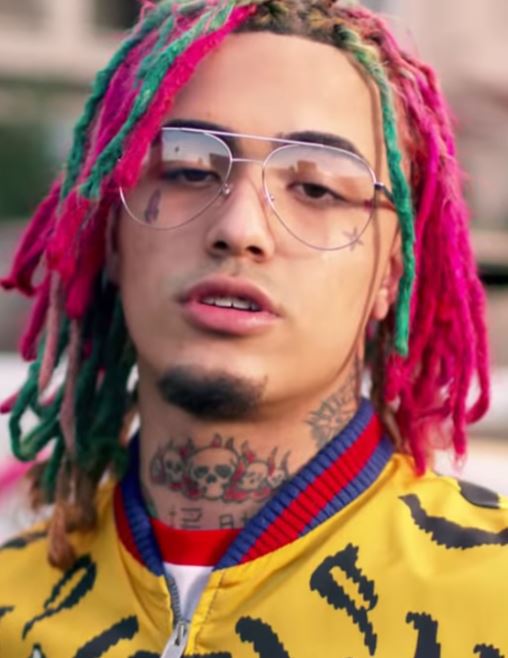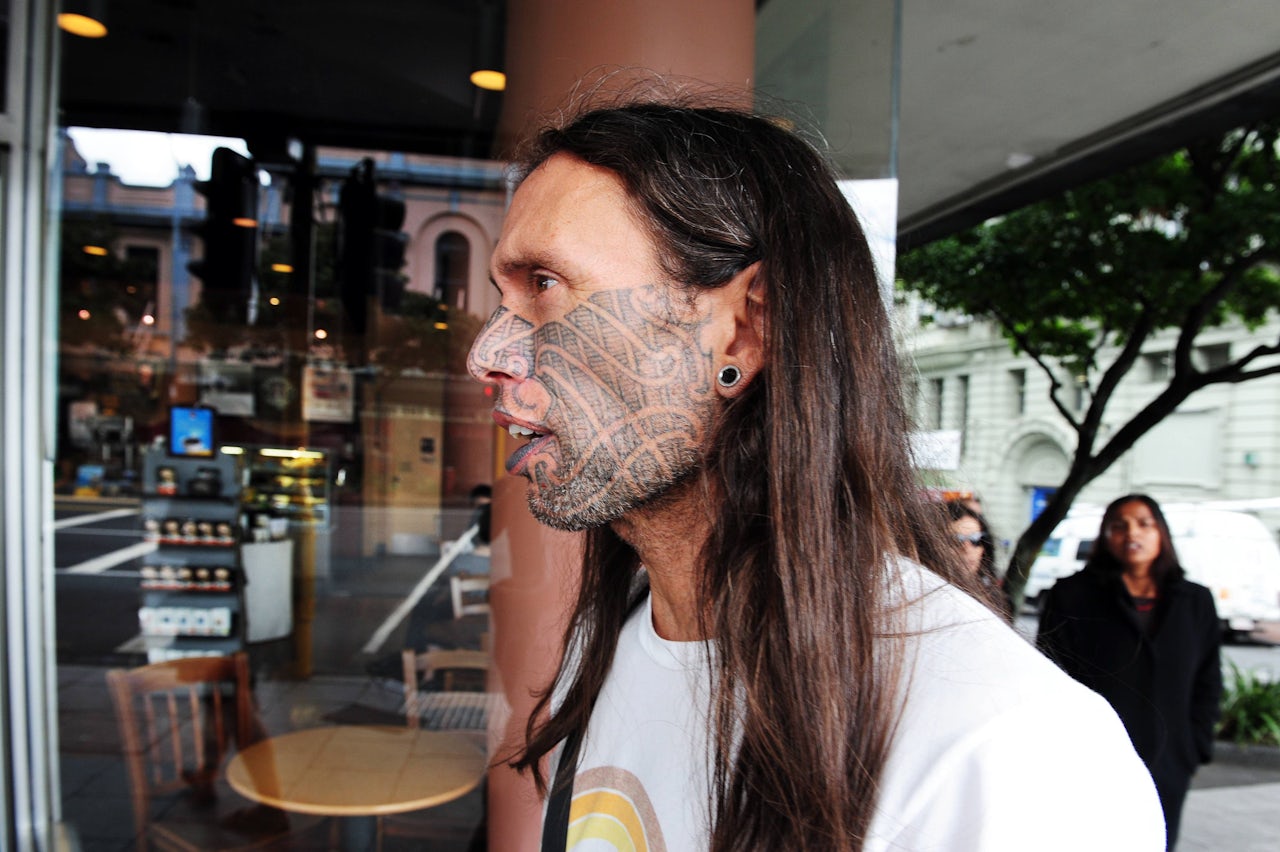When you hear the term "white rapper with tattoos on his face," what comes to mind? Is it a stereotype of rebellion, artistic expression, or just plain coolness? Well, buckle up because we’re diving deep into this fascinating world where music meets ink and identity. Today, we’ll explore how some white rappers are using tattoos as an extension of their artistry, challenging societal norms, and creating something truly unique.
This isn’t just about having a few lines etched onto your skin; it’s about storytelling, breaking barriers, and owning who you are. In a genre often dominated by preconceived notions, these artists are proving that authenticity trumps everything. So whether you’re a fan of hip-hop or simply curious about the culture, stick around because this ride is going to be wild.
Let’s face it—tattoos have long been associated with rebellion, but when combined with rap music, they take on a whole new meaning. It’s not just about aesthetics; it’s about self-expression, individuality, and defiance against the status quo. And for white rappers, adding tattoos to their persona adds another layer of complexity that demands attention. Let’s get into it!
- Jeanine Pirros Age More Everything You Need To Know
- Charli Xcxs Journey From Rave Scene To Global Pop Icon
Who Are These White Rappers?
Before we dive deeper, let’s first talk about the artists themselves. We’re not just talking about any random guy with a mic and some ink. These are individuals who’ve carved out their own niche in the rap game, often facing criticism for stepping into a space traditionally dominated by Black artists. But instead of shying away, they’ve embraced their identities fully, incorporating tattoos as part of their larger artistic vision.
Biography of Key Figures
One name that immediately comes to mind is Machine Gun Kelly, or MGK as he’s commonly known. Born Colson Baker, this Cleveland native started his career as an underground rapper before gaining mainstream success. His rise wasn’t without controversy, but his bold use of facial tattoos has become a defining feature of his brand. Below is a quick glance at his background:
| Name | Colson Baker |
|---|---|
| Stage Name | Machine Gun Kelly (MGK) |
| Birthdate | April 6, 1990 |
| Place of Birth | Hoboken, New Jersey |
| Genre | Rap, Pop-Punk, Rock |
Another notable figure is XXXTentacion, whose tragic life and untimely death left a lasting impact on the music industry. While his style was more rugged and edgy, his facial tattoos played a significant role in shaping his mysterious and rebellious image. Both artists use tattoos not just as decoration but as a way to tell their stories and connect with their audience.
- Nj Burkett Wiki Wife Children And Career Updates News
- Daniela Ruah Height Weight Bra Size Body Measurements
Why Tattoos on the Face?
You might be wondering—why go through the pain and permanence of getting tattoos on your face? For starters, it’s a powerful statement. Facial tattoos are hard to ignore, making them the ultimate form of self-expression. They force people to confront the artist’s identity head-on, literally and figuratively.
For many white rappers, tattoos serve as a way to pay homage to their influences while also asserting their individuality. It’s like saying, “Yeah, I know I don’t fit the mold, but here I am, unapologetically myself.” And let’s be real—if you’re gonna do something unconventional, you might as well go all out.
Symbolism Behind the Ink
But it’s not all about aesthetics. The designs themselves carry deep symbolism. Take Machine Gun Kelly, for instance. His iconic "teardrop" tattoo is often misinterpreted as a symbol of gang affiliation, but for MGK, it represents personal struggles and resilience. Similarly, XXXTentacion’s facial tattoos were rumored to represent his Native American heritage, adding another layer of meaning to his already complex identity.
Here’s a breakdown of common tattoo symbols and their meanings:
- Teardrop: Often associated with loss or hardship
- Cross: Represents faith, spirituality, or remembrance
- Skull: Symbolizes mortality, rebellion, or transformation
- Flowers: Can signify growth, beauty, or life
The Controversy Surrounding White Rappers
Now, let’s address the elephant in the room. The topic of white rappers with tattoos on their faces is bound to spark debate. Critics argue that these artists are appropriating Black culture, while supporters claim they’re simply expressing themselves. Where do we draw the line?
It’s important to acknowledge that rap music originated within Black communities as a form of resistance and empowerment. When white artists enter this space, they must approach it with respect and understanding. That’s where authenticity comes in. True artists aren’t afraid to explore their roots and share their genuine experiences, rather than copying someone else’s story.
How to Navigate Cultural Appropriation
So how can white rappers navigate this tricky terrain? Here are a few tips:
- Be transparent about your intentions and inspirations
- Collaborate with Black artists and uplift their voices
- Avoid stereotypes and harmful tropes
- Focus on your unique perspective and experiences
Ultimately, it’s about striking a balance between honoring the culture and staying true to yourself. As long as you approach it with respect and authenticity, there’s no reason why you can’t make a meaningful contribution to the genre.
Facial Tattoos in Popular Culture
Facial tattoos aren’t exclusive to white rappers, of course. They’ve been popping up in various forms across popular culture, from rock stars to Hollywood actors. Think of musicians like A$AP Rocky or actors like Johnny Depp—each one uses tattoos to enhance their persona and create a distinct image.
In the world of rap, facial tattoos have become almost synonymous with edginess and street credibility. But what does this say about society’s perception of beauty and identity? Are we moving towards a more inclusive definition of what it means to be attractive, or are we reinforcing outdated stereotypes?
Trends and Evolution
As with any trend, facial tattoos have evolved over time. What started as a niche style has now become mainstream, with more and more people embracing the look. Social media platforms like Instagram and TikTok have played a huge role in popularizing this trend, allowing artists to showcase their ink to a global audience.
Here’s a look at how facial tattoos have changed over the years:
- 1990s: Seen primarily in punk and rock subcultures
- 2000s: Emerged in hip-hop and urban scenes
- 2010s: Became mainstream with celebrities and influencers
- 2020s: Widely accepted across various demographics
Breaking Barriers in the Music Industry
White rappers with tattoos on their faces are doing more than just shaking up the fashion world—they’re breaking down barriers in the music industry. By challenging traditional notions of what a rapper should look like, they’re paving the way for future generations to embrace their individuality without fear of judgment.
Take Lil Pump, for example. Known for his eccentric style and bold tattoos, he’s become a cultural icon in his own right. His success proves that there’s room for everyone in the rap game, regardless of race, gender, or appearance.
Impact on Fans and Followers
For many fans, seeing artists with tattoos on their faces serves as a source of inspiration. It shows that it’s okay to be different, to express yourself freely, and to defy societal expectations. This kind of representation is crucial, especially for young people who may feel pressure to conform to certain standards.
Studies have shown that representation matters. When people see themselves reflected in media, they’re more likely to pursue their passions and strive for greatness. So whether it’s a white rapper with tattoos or a Black singer with natural hair, diversity in the arts benefits us all.
Challenges Faced by White Rappers
Of course, not everything is sunshine and rainbows. White rappers with tattoos on their faces often face criticism and scrutiny from both fans and critics. Some accuse them of trying too hard, while others dismiss their talent altogether. But every great artist faces challenges, and it’s how they respond that defines their legacy.
One of the biggest hurdles is overcoming the perception that they’re not “authentic” enough. In a genre rooted in authenticity, this can be a tough pill to swallow. However, the most successful artists are those who stay true to themselves and let their work speak for itself.
Overcoming Criticism
So how do they do it? Here are a few strategies:
- Focus on delivering high-quality music
- Engage with your audience and build a loyal fanbase
- Collaborate with artists from diverse backgrounds
- Stay humble and open to feedback
At the end of the day, the only opinion that truly matters is your own. If you believe in what you’re doing, nothing else should matter.
Conclusion: Embracing Individuality
White rappers with tattoos on their faces are redefining what it means to be an artist in today’s world. They’re breaking stereotypes, challenging norms, and inspiring others to embrace their uniqueness. Whether you love them or hate them, there’s no denying their impact on the music industry and beyond.
So what can we learn from this? That authenticity is key. In a world full of noise, standing out requires courage, creativity, and conviction. And if getting tattoos on your face helps you express yourself, then more power to you.
Now it’s your turn. Do you think facial tattoos add value to an artist’s persona, or do you see it as a passing trend? Let us know in the comments below, and don’t forget to share this article with your friends. Together, let’s keep the conversation going!
Table of Contents
- Who Are These White Rappers?
- Why Tattoos on the Face?
- Symbolism Behind the Ink
- The Controversy Surrounding White Rappers
- How to Navigate Cultural Appropriation
- Facial Tattoos in Popular Culture
- Trends and Evolution
- Breaking Barriers in the Music Industry
- Impact on Fans and Followers
- Challenges Faced by White Rappers



Detail Author:
- Name : Prof. Emery Rohan I
- Username : sschuppe
- Email : estevan.bayer@lind.info
- Birthdate : 2002-04-14
- Address : 68085 Nelson Oval Kamrynmouth, MS 78535-7041
- Phone : 385.345.2823
- Company : Greenfelder, Windler and Jones
- Job : Carpet Installer
- Bio : Sint ut necessitatibus recusandae. Dolor dolor alias esse ipsum exercitationem cum deserunt.
Socials
tiktok:
- url : https://tiktok.com/@kassulkec
- username : kassulkec
- bio : Ut illo voluptatum non voluptatem. Nulla aut qui itaque ab impedit.
- followers : 6849
- following : 210
instagram:
- url : https://instagram.com/chasity_xx
- username : chasity_xx
- bio : Iste id provident vero. Rerum hic facere nihil dignissimos. Sit ea et odio non libero quam enim.
- followers : 6199
- following : 2480
facebook:
- url : https://facebook.com/ckassulke
- username : ckassulke
- bio : Quia assumenda odio officiis quis dolore possimus quia incidunt.
- followers : 2819
- following : 2100